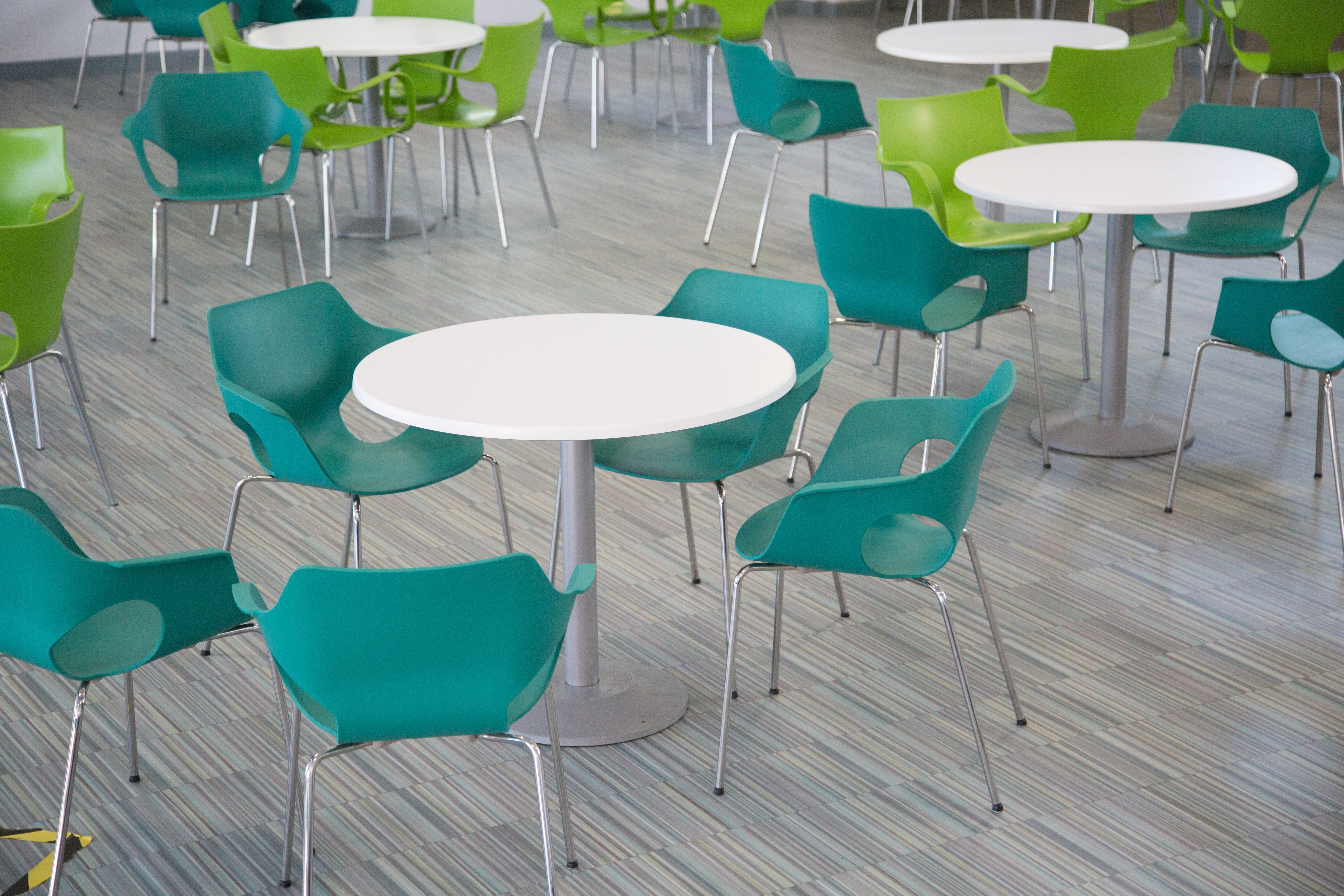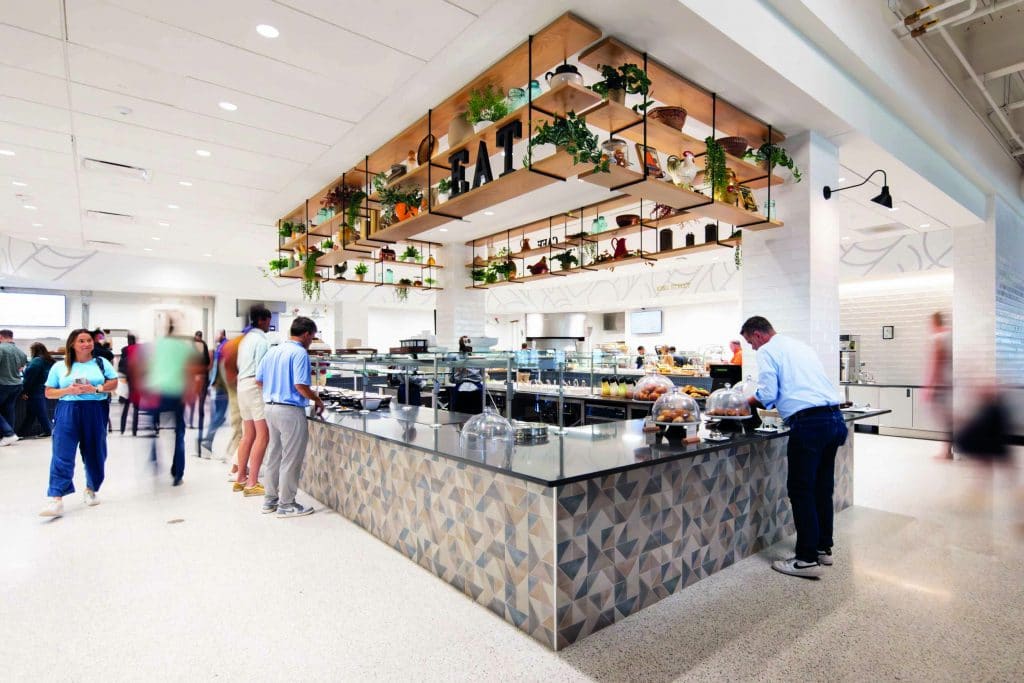
Four months on since the last webinar from FCSI UK & Ireland and Association of Catering Excellence (ACE) on this subject, chair Karen Fewell reflected on the differences between then: when we were looking forward to an easing of lockdown restriction, and now: with many parts of the UK back under lockdown measures that have a huge impact on the hospitality sector.
The panel included Ed Bircham FCSI, director at Humble Arnold Associates; Ian Thomas, CEO at Bartlett Mitchell; Chris Stern FCSI, managing director at Stern Consultancy Ltd and Sarah Prentice, sales and marketing director at Blue Apple Catering.
The first discussion was about how the job of foodservice consultant had changed over the past few months. “There’s been a focus on video conferencing. That for us, has meant that a lot of the design work we’ve been doing is a bit more committee based,” said Ed Bircham of Humble Arnold Associates. “We’ve seen meetings of 40-50 people, which I’m not sure gets the best results.”
Keeping working
Chris Stern of Stern Consultancy was pleased to report he’d been busy although some of the work was not something he would normally do. “What we’ve been dominated with doing is modelling for clients, the most horrible stuff to be honest – how many people should you make redundant? How small is the business going to look?” he said. “So, it’s been a little bit depressing, but it’s keeping the boat afloat, which for us, as for everyone is very important.”
“We don’t see our role changing,” added Bircham. “I see the requirements of clients changing. We’ve already talked to clients about smaller facilities in many instances, but the move towards more portable product was happening anyway, pre-Covid. As a discipline we’re adept at dealing with changing client aspirations as they evolve, I think our role remains the same.”
Talk then moved to the plight of contract caterers in light of the back to work/stay at home debate. “I’m not going to dress it up, it’s been at times heartbreaking, but also there’s been some opportunity and chances for our teams to shine and be innovative and come up with ideas for savings or revenue generation,” said Ian Thomas of Bartlett Mitchell. “We’ve pivoted our business and come up with different options.”
“It’s been like a rollercoaster, big highs, bad lows,” said Sarah Prentice of Blue Apple Catering. We had a great start to lockdown. We actually won a few contracts. It was just weird, doing a presentation on Zoom, I couldn’t even see who I was presenting to, because it wasn’t working, but we were successful and that contract has actually been mobilised and opened. So that’s a high, but the flip side to that is we’ve lost some contracts, we’ve lost some really great people.”
North south divide
With the introduction over recent weeks of the three-tier system of lockdown, which is predominantly affecting the north of England Thomas reflected on how its impact on Bartlett Mitchell’s offering. “That Northern belt going into Tier 3 has changed things for us. Previously London-centric work was just dead. No one wanted to go on the tube or public transport. I was going into the city two or three times a week and it’s like a zombie film,” he said.
“Two or three weeks ago our regional sites, north and south, were ticking over, between 10-25% people on site, increasing volumes safe systems at work. Since these tiers have come into play and since Boris’ announcement to work from home again, there’s been a bit of a reversal. It’s heart breaking to see teams on furlough or, even worse, being made redundant, because it’s not their doing. This is outside everybody’s control, so you can be doing a fantastic job and bad things are happening.”
A recent blog post by Stern on LinkedIn provoked discussion with its deliberately provocative title Which contract caterers are going to fail?. “I never used to post on LinkedIn, but with a bit more time on my hands you start to think, he said.
“I’d just come back from talking to a catering contractor in London that day who was telling me the story about how he went to meet a client in financial services, who was telling him how well they were doing in the pandemic, profits were way up, turnover was up, everything was fantastic. The subject got around to redundancy [for the contract caterer’s team] and the lights went off, the client said ‘You must be joking – why on earth would I pay redundancy for your staff?’ I don’t think anyone worried about the redundancy clause in their contract, making sure the client was responsible for it, because nobody ever thought something like this would happen.”
Who pays?
“At the start of this there was a lot of rustling about in bottom drawers and pulling out contracts to see who was liable for what sort of redundancy costs, but about 95% of our clients have been really understanding,” said Prentice. “Some of our clients have gone above and beyond and it’s really been appreciated by our teams.”
Stern added: “What we’ve seen is that a lot of clients, probably the majority, understand that it’s their cost. I’ve worked with a few who have been brilliant. They’ve understood that caterers just don’t have the money, and frankly £50,000 to an enormous bank is nothing whereas to a small catering contractor it’s very damaging.”
“Caterers are creative people,” said Thomas. “My greatest fear is that we’re going to lose people from the industry, because you’re going to get culinary talent or managerial talent, leaving the industry, moving to other sectors and not coming back. It’s a tragedy.
This prompted a question from an audience member asking: Will the hospitality talent pool be diluted by people having to look to new industries, because hospitality looks such a poor future prospect?
Thomas answered that in the short term yes it would, but then pointed out that the catering market is frequently hit by issues and talent shortages. “We’ll find a way. Across the board with contract caterers I feel there is enough integrity within the organisations and drive behind the leadership that we will find solutions. Long term I’m not worried. Short term I think it will be a problem,” he said.
Keeping positive
The panel were keen to talk about the positive things that have come out of the crisis. “It’s analogous to warfare isn’t it, it starts to accelerate innovation,” said Bircham. “Touch-free products, which some people have been working on for a period of time, have been brought to market. From our side some of the key differences are in terms of HACCP, work flows, all those things we’ve been banging on about for years, they’re less likely to be value engineered now.”
“For me technology is the massive thing,” said Prentice. “For years we dibbled and dabbled in apps so to have this app up running and launched at our sites was like ‘Yes! We made it’.”
Stern sees a way for catering to be appreciated more post-Covid: “I wonder whether clients will now value catering more? Looking forward there will be more people working from home, so when people come into the office it’s going to be really important, clients are recognising it has got to be a great place and catering plays a really big part of that.”
A question from an audience member asked about the importance of hygiene and deep cleaning of kitchens when operations start up again. Thomas was swift to respond: “For any decent operator this is always top of the list. This is what we do, with Covid there’s an extra level, but now that’s the next normal. Do I think it’s important? Yes, but it was always important so I don’t see that as being an extra issue.”
Looking to the future
It is widely agreed that things are looking a bit tricky over the next few months so Fewell asked the panel what advice they would offer those working in or supplying contract catering to get through the next six months.
“There is no easy answer,” said Stern. “Just get your head down and be imaginative. What I always say is think of positive stuff that you can be doing. I’ve caught up with so much stuff. Use this time to engage, I’m a big fan of social media. If, like me, you have to drive your own business I think it’s really important. Keep your profile up, keep cheerful, don’t complain.”
The thing from the equipment side that I would say is be focussing on product/innovation that has long-term benefit,” said Bircham. “Don’t get too sold on things that seem to be reactive and solving problems at the moment but won’t have an appeal in a year’s time, when hopefully we’ll be back living our good lives and the vaccine has recovered normality for us all.”
“Work on building relationships and assisting clients, your teams and building a pipeline for the future,” said Prentice. “Don’t get too bogged down watching too much depressing stuff on the news. Work together, look after your teams and keep communicating.”
“I totally agree with Sarah, stop watching the news, except when there are announcements that affect us, said Thomas. “We have seen some amazing things through just being open and direct with clients and working in partnership. That collaboration has probably been the most powerful thing. So, keep close to your teams, keep close to your clients.”
Jacquetta Picton




